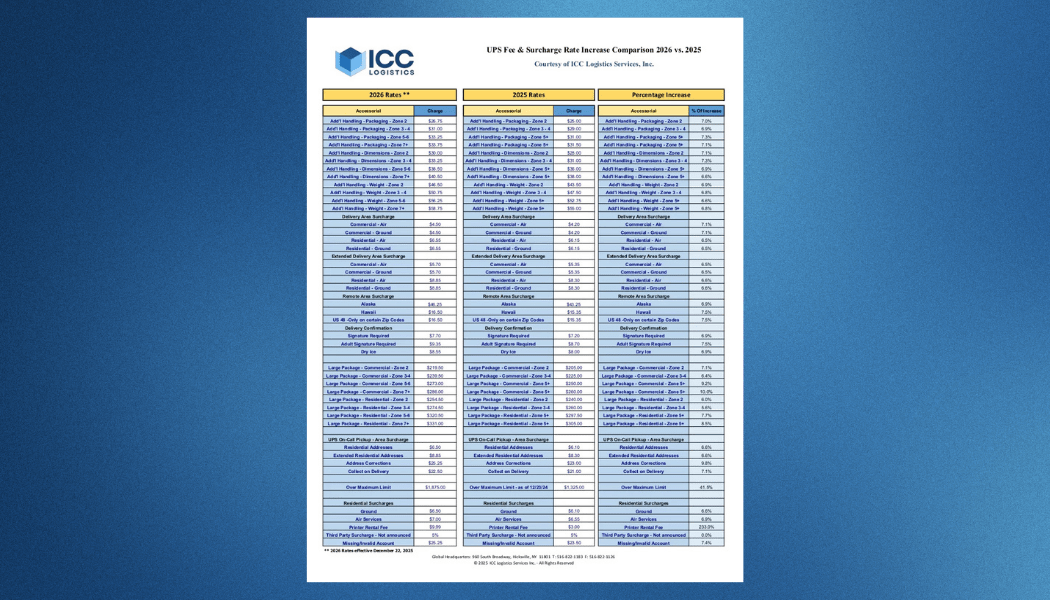Big Data or Bad Data?
“Big Data” is a large, complex data set coming from multiple sources, in a variety of formats, both structured and unstructured.
When it comes to Supply Chain and Logistics operations, you can be assured more data is coming in at accelerating speeds, in different formats and, from multiple sources. In many cases, that data will come with inconsistencies and inaccuracies that will create what’s called “Bad Data”– which will cloud the value of the information received.
“Bad Data” is becoming an increasingly problematic issue for US businesses as companies continue to grow the outsourcing of their supply chain and logistics operations on a global scale.
Bad Data will ultimately lead to Bad Decisions
“Bad Data” is an inaccurate set of information, including missing key elements, incorrect information, irrelevant data, non-conforming data, duplicate data and poor entries (misspells, typos, variations in spellings, format etc.). “Bad Data” is unstructured and suffers from quality issues.
Utilizing “Bad Data” in your Supply Chain and Logistics business decisions can and WILL prove catastrophic. To prove this point, according to an IBM study, “Bad Data” costs companies $3.1 Trillion per year.
That is a staggering figure and one that will surely increase in the coming years.
Companies using “Bad Data” will subject themselves to:
- Creating false information leading to poor business decisions and failed practices
- Providing incomplete and inaccurate answers to management leading to wasted time, resources and finances
- Generating irrelevant information leading companies down rabbit holes that should never be part of their decision making process
What companies want and need is Complete and Accurate answers that allow them to drive innovation through:
- Anticipating consumer demand to drive supply chain decisions
- Building predictive models that enable development of new products and services
- Reducing outages or shortages by achieving operational efficiencies
- Tracking orders from sourcing to ultimate delivery to ensure 100% customer satisfaction
- Continually minimize costs while at the same time maximizing service offerings
Companies want and NEED “Clean Data”
Like the painter who tapes the perimeter of a room and carefully works the edges before rolling the wall, significant time must be spent curating and preparing the data before it can be properly analyzed.
First, the data must be integrated from multiple sources and formats. Then, companies must address the issue of volume and how to capture and manage the data before finally analyzing and acting.
Understanding “Bad Data” is an inherent characteristic of data collected in its raw form. Data must be aligned with a company’s specific business goals to eliminate waste and irrelevance. By aligning unstructured data with previously structured data, companies can design standards and governance that ensures the data is clean, accurate and manageable.
“Bad Data” can lead to:
- Inaccurate and incomplete insights
- Wasteful investments
- Lost productivity
- Ineffective and destructive Supply Chain Operations
In the end, “Bad Data” affects company bottom lines by shrinking margins and lowering company profits.
How to Fix “Bad Data”
Implementing a Data Quality Audit will help turn “Bad Data” into meaningful and insightful “Big Data”. The problem for many companies is that they do not have the internal resources and in some cases the expertise to accomplish this audit. Therefore, utilizing a 3rd party auditing company will confirm the accuracy of your data while ensuring compliance and gaining easier access to good and useful data. They start with the entry point of the data to avoid inconsistencies, reveal any sources of bad data and identify if these are coming from an outside vendor or internal sources.
The purpose of collecting data is to make good business decisions.
Ensure your sources of data are:
- Accurate
- Complete
- Relevant
- Reliable
Understand what data your company needs and refine the process of collecting that data
Continually have a Third Party audit the data collection process
Avoid internal bias by utilizing the Third Party auditor on an ongoing basis
Your insights are only as good as the data that is being analyzed
Supply Chain costs are complex and in many cases decentralized. A comprehensive Data Analytics approach of collecting “Big Data” from multiple sources and benchmarking that data from multiple similar competitors will provide greater insight and understanding of your supply chain operations. This will ultimately lead to lower shipping costs and best service practices going forward.
Relying on experts in Supply Chain Data Analytics will ensure a company’s Big Data does not turn into Bad Data and will continually provide Good and Reliable Insights. All this will lead to better service through greater efficiencies, improved productivity, lower costs and increased profitability.



 to receive our FREE white papers:
to receive our FREE white papers: